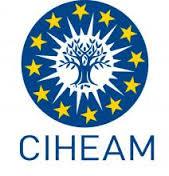Resource information
Portugal has voluntarily committed to reporting the CO2 emissions and removals resulting from grassland management under Kyoto Protocol Article 3.4. This commitment, together with the fact that a significant proportion of grasslands in Portugal are of low productivity and are located in the regions with higher risk of desertification, brought the context and motivation to promote the expansion of permanent sown biodiverse rich in legumes. These pastures are an innovation from the Biodiversity Engineering that promotes the increase of the soil organic matter and consequent carbon sequestration. Nowadays, this type of pasture represents more than 85 000 ha in Portugal, from which a significant percentage has been supported by the Portuguese Carbon Fund as a way of refunding farmers for the provision of an environmental service. Recently, the Portuguese Carbon Fund has also demonstrated interest in remunerating the farmers willing to control shrub encroachment at pastures through the use of non-invasive techniques that promote soil carbon sequestration. Regarding the biodiverse pastures, a 10 years model of the soil organic matter dynamic shows a carbon sequestration of about 6.5 t CO2.ha-1.yr-1. In the case of the change of practice for shrub control, results from a preliminary model are promising in what concerns the prediction of carbon sequestration.



